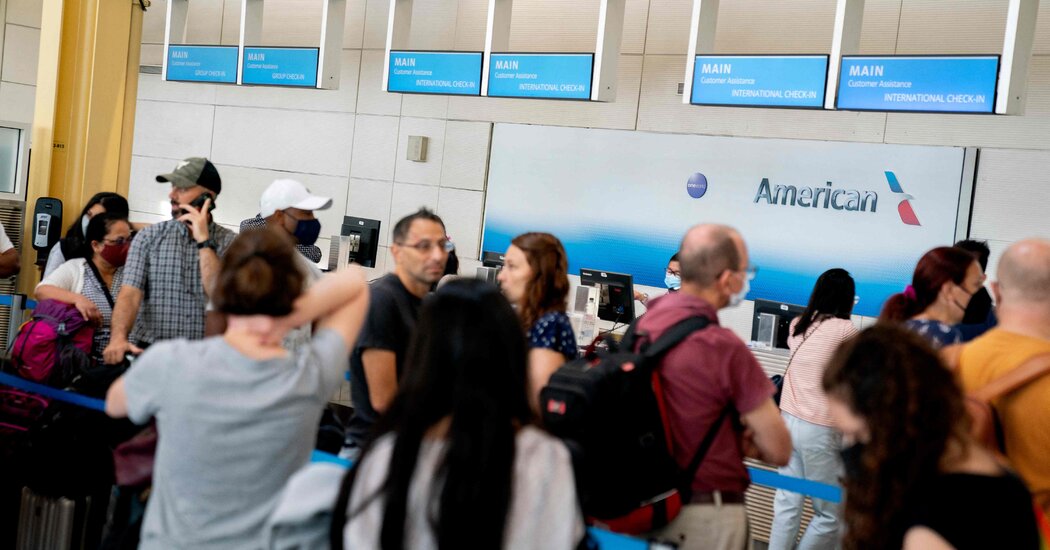Travelers across the country faced the prospect of canceled or delayed flights on Saturday as airlines and airports faced a combination of high demand, bad weather and staff shortages.
According to flight tracking website FlightAware, nearly 650 flights were canceled in the United States on Saturday night and more than 5,200 flights were delayed in, to or out of the country.
Although the number of problem flights was higher than on a typical travel day, the demand for travel was also higher. According to the Transportation Security Administration, the number of travelers had reached pre-pandemic levels by the July 4 holiday weekend. Demand for travel over the same holiday weekend last year had recovered significantly from pandemic lows, but was still below this year’s level.
FlightAware data showed that the three airports in the United States most affected by cancellations and delays on Saturday were Dallas-Fort Worth International Airport and Kennedy Airport and Newark Liberty International Airport in the New York area.
The number of canceled and delayed flights was well below the level of the past Christmas and New Year holidays, when bad weather and Omicron-related staff shortages wreaked havoc on airline schedules.
Still, airlines are struggling to keep up with demand during this July 4 holiday as they struggle with pilot shortages, weather conditions and air traffic control delays.
“Delta teams continue to safely manage the composite factors of inclement weather and air traffic control delays, which affect flight crew availability,” a Delta Air Lines spokesperson said in an email. “Canceling a flight is always our last resort and we sincerely apologize to our customers for any disruption to their travel plans.”
Delta said it will offer customers the ability to reschedule flights from July 1 through July 4 without a fare change if they travel between the same departure point and the same destination.
United Airlines also blamed the weather and air traffic control programs for the delays.
The stress at American Airlines was compounded by a computer malfunction in the pilot trip trading system that, the airline said, allowed some trips that “should not have been allowed.” But American said it was not “anticipating any operational impact due to this issue”, adding that the “primary causes of delays/cancellations” on Saturday were “weather and traffic control issues”.
The Federal Aviation Administration said the main cause of flight delays and cancellations was weather conditions, followed by travel demand. The agency added in a statement: “The FAA has taken action on the issues raised by airlines and is working with them to share information to keep aircraft moving safely when weather and other airspace events reduce capacity. to limit. The agency has also added alternate routes, placed more controllers in high-demand areas, and shared more data.”

